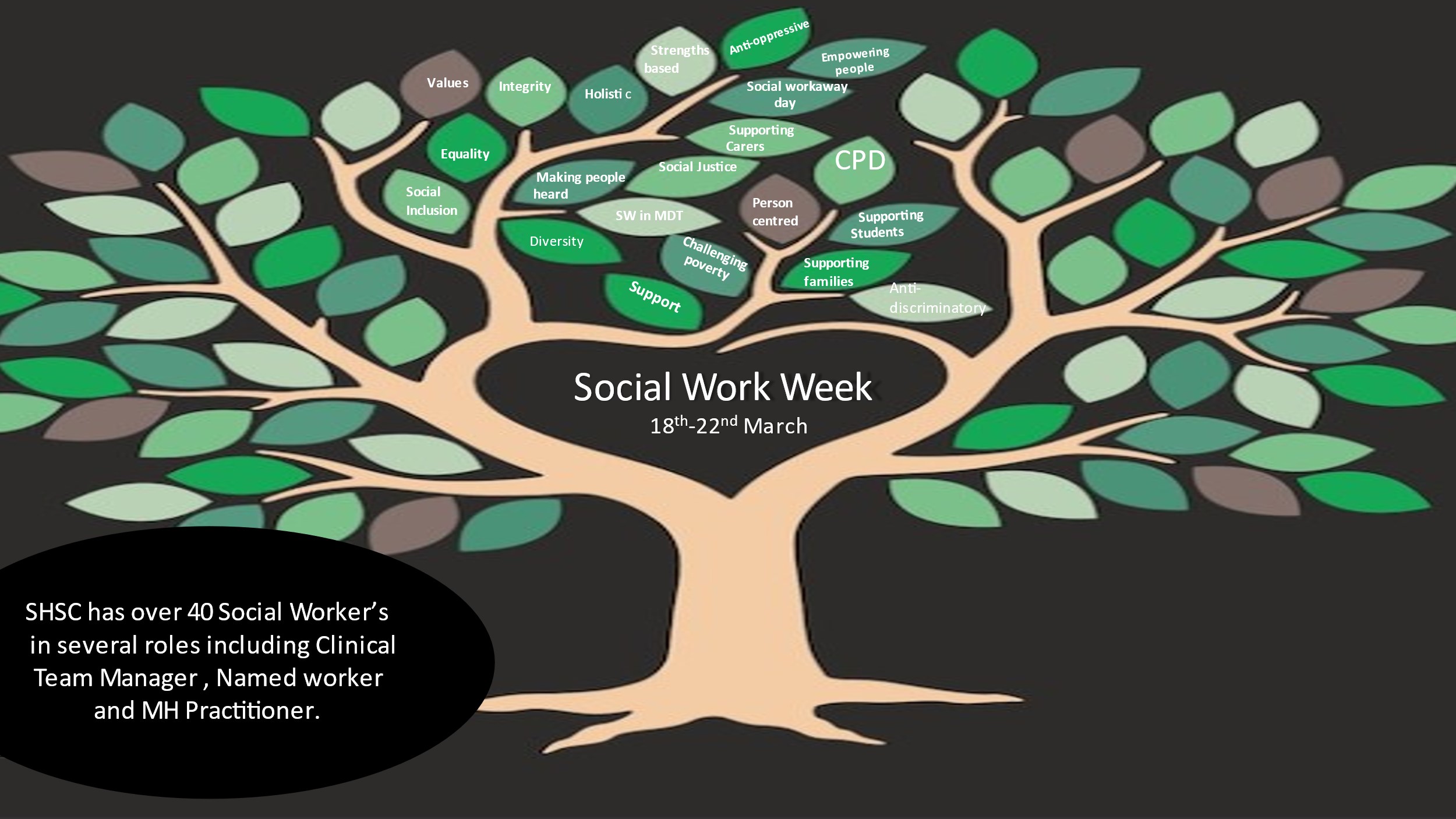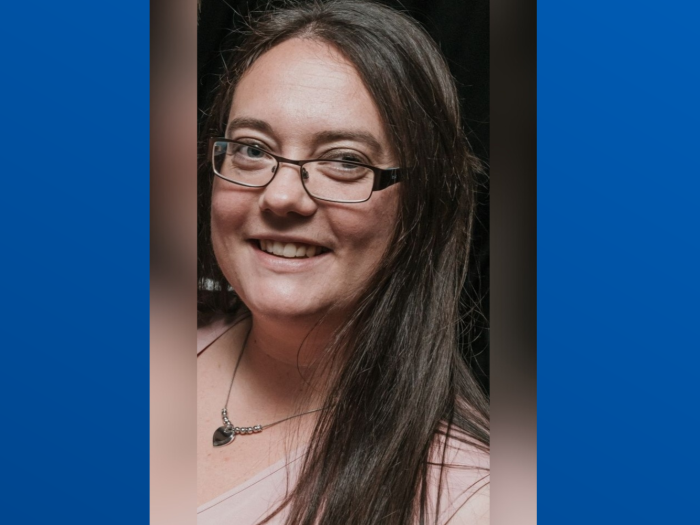To celebrate Social Work Week 2024, Emma shares what a day can look like being a social worker for both the Single Point of Access service (SPA) and Emotional Wellbeing service (EWS).
Hi, my name is Emma and I qualified as a social worker three and a half years ago. I graduated through a mental health social work programme, having already worked in mental health for a number of years, and now work as a mental health clinician in the Single Point of Access and Emotional Wellbeing Service (SPA/EWS).
SPA and EWS triage referrals into crisis and secondary services, undertake assessments to explore care and support needs in order to identify the most appropriate pathway of care, and provide short term interventions for a range of service users that sit between primary and secondary care services.
Here is what a day as a social worker with SPA/EWS looks like.
Emotional Wellbeing Service
8:30am
I am arriving for my working day at EWS. I spend the first five minutes checking my emails and calendar for the scheduled appointments followed by 20 minutes of admin tasks. Today is writing up a note to reflect the session we had completed the day before and emailing a copy of a safety plan to a service user.
9am
I move on to preparing for my assessment. I am looking at what brought them into contact with services and any background information which we may have. This is useful for guiding the assessment and exploring how their mental health may have changed over a period of time. The service user I am assessing is a few minutes late but we settle into the clinic room and begin to talk about how his current mental health impacts his life and day to day functioning. He shares some of his life history with me and we think about how this may have impacted his mental health and what support may be helpful for him to achieve the life he wants to live. We agree a follow up contact to discuss the outcome of the assessment and subsequent recommendations.
10:45am
I get back into the office and work through a list of admin tasks - referrals to other services, sending appropriate resources to service users from the previous day's appointments, responding to emails about service users and starting to write up the assessment completed that morning.
11:30am - 1pm
I have three phone calls booked in - a service user who was discharged from hospital following an admission, updating a social worker from the long term placement team about a shared service users assessment and a service user who does not want support from mental health services but did agree to a few check in phone calls (I’ll take what I can get!). The first two phone calls are fairly positive, EWS is coming to an end as we merge with primary care services and I talk to a service user about the ongoing support she needs for her mental health so we can identify the most appropriate service. The service user in a long term residential placement has made positive changes in the short time she has been with them and highlights how with the right support, recovery is entirely possible. My final phone call goes unanswered. I make two further attempts at different times. I’m pretty sure one call is diverted and then his phone is turned off. I send a text to remind him of our contact details should he wish to speak with me. I will call again tomorrow.
The last appointment of the day is a home visit to a service user who will not leave the house. We talk about the anxiety management skills she has been trying and using them before exposing herself to avoided tasks. She is disappointed that she has not achieved the goals she has set herself and we explore the barriers and motivation behind her changes. I inform her of the changes to EWS and try to settle her fears and point of the strengths she has identified- these are within her not mental health services. The appointment ends positively and we have a plan for further contact. Some of my admin will role over to the next day. I prioritise those without risk assessments and failed contact.
Single Point of Access
A day in Single Point of Access is very different. We are one service with two very different functions.
8am
I am the sole clinician for a short period of time. I am the shift coordinator and managing any urgent calls that come through. As shift coordinator, it is my job to allocate roles on the duty board - these are monitoring the duty inbox (everything and anything about service users open to SPA/EWS comes this way), initial screening of new referrals to identify if they require an urgent or routine response, and triages.
A crisis call comes in. I gather information from our admin team who have identified the patient. She is well known to services and open to another team who will will not be available until 9am. The call is transferred. Establishing her safety is my first priority. We then explore what has led her to making her call - what is she experiencing, what has she tried to do to manage her thoughts and feelings? I look at her safety plan and care plan whilst we talk and remind her of her own suggestions. Once contained, we discuss her plans for the day and end the call. I write the call up and email her team.
09:15am
The first ‘huddle’ of the day. It’s a mini multidisciplinary team meeting that brings together professionals working into SPA. We look at work planned for the day and discuss any cases that we have concerns or need a fresh perspective on.
I am working through triages today. I start with routines - why have they been referred, what information we do have, what information we need to make a decision, what has been helped in the past? I call the service users where I need more information. Some just need the additional support of talking about how they are feeling and are already on the right pathway of care, others need the right pathway of care identifying.
11:30am
A priority is allocated to me We have limited background information so a risk assessment is difficult.
I try to contact the service user first, no answer. I try again, no answer. I speak to her parents and gather information about how her life appears to have changed, query any stressors in her life and try to get an idea of risk of harm to self or others. Her parents encourage her to speak to me on the phone and she does for a short time. I get limited information from the content of her speech, but she appears guarded.
12:15pm - 3:15pm
At a huddle I present my case of concern. I present the facts I have been given and highlight my own concerns. The team asks questions that I may have not answered and we consider the different outcomes. She is currently being supported by family but they are struggling and there is the potential for a breakdown in the family home. We need to assess her but an urgent assessment slot within EWS is two weeks away. As a team we consider different outcomes. She is accepted for a crisis assessment which will be carried out by the Crisis Resolution Home Treatment Team tomorrow. I report back to her family.
Once my priority has been concluded, I continue my routine triages. Towards the end of my day, I do a quick check of my emails and mark the ones I need to prioritise tomorrow.
Like most jobs within a busy, pressured, service, there is no 'typical day'. I have done my best to record my working days to highlight the complex and varied work we do but my role is more than a prescribed set of tasks. Each service user I work with has their own unique experiences and perspectives, and it is my job to draw out their strengths and motivations for them to make the changes with the skills they have and the ones we will work on together so they are able to work towards their recovery and ultimately live the lives they want to.
We are in a privileged position to hear their stories, often in times when they are at their most vulnerable, and use our own skills whether it be through sharing our knowledge or emotional containment to help them move towards and through change. We try to be non judgemental and reflect on those judgements we do make. We think ‘outside the box’ to find personalised solutions in a system that can never have true flexibility.
We navigate services, promote rights, encourage responsibility and advocate for those who cannot have their voices heard. And we do it all with hope - for justice, fairness and making even just a small difference. We are social workers, a label I will proudly accept.

